User research is a shared responsibility unless you’re working in an organization that has a
- dedicated research team on payroll,
- a lot of time on their hands or,
- big money in their pockets.
But even then, there is no harm in conducting your own research. Especially, if you’re in a startup or a small organization then you have no other choice but to conduct the UX research by yourself.
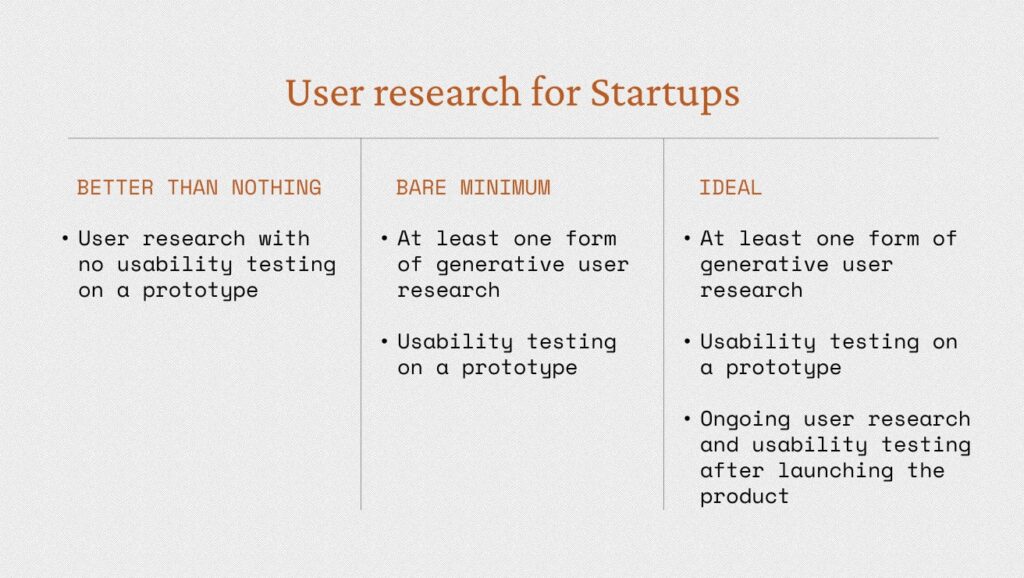
You Are a Born Researcher
If you know nothing about user research, don’t worry. You don’t have to learn it. It’s something you have been doing all your life but might not have been aware of. Humans have been doing user research right from the beginning of the cognitive revolution, around 70,000 years ago. And it has helped them to:
- know other people,
- figuring out their strengths and weaknesses,
- making strategic alliances,
- keeping and sharing secrets, and
- gaining and receiving favors,
to ultimately increase their chances of survival.
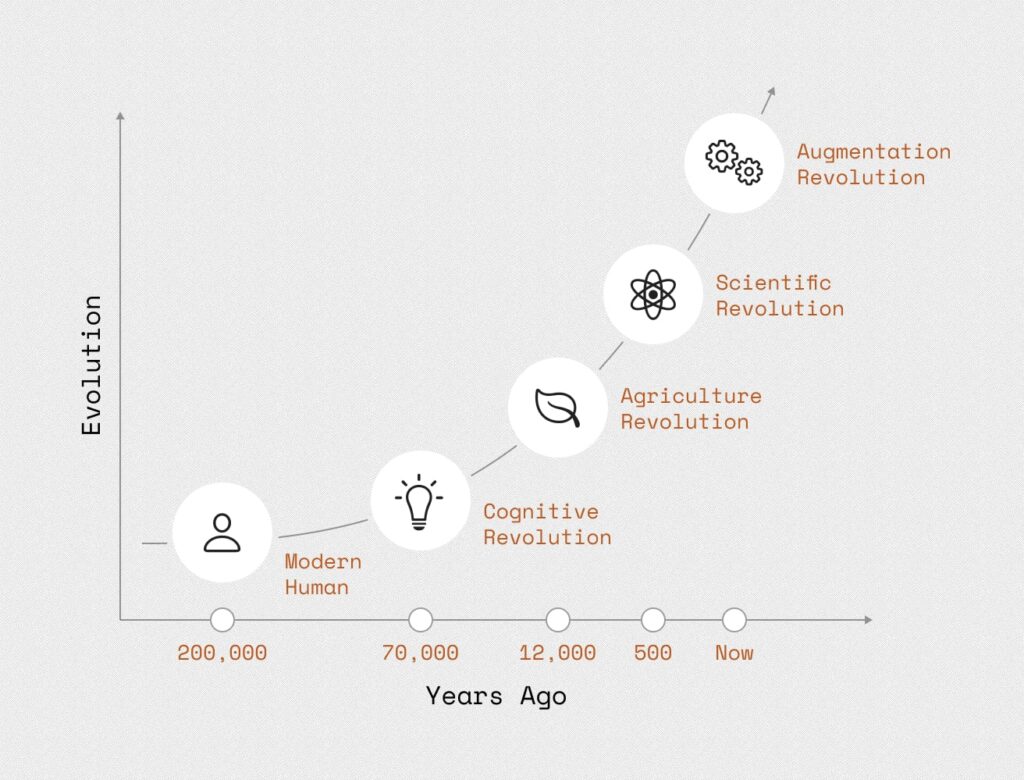
Other People’s Opinions Do Matter
Even today, for example, whenever you want to buy something, you go and seek the opinions of your family, friends, neighbors, and other people.
- What do they think?
- Are they using similar kinds of things?
- And if they do, how much did they pay for it?
- What are their experiences?
- What are the available options in the market?
- Should you go with cheap or best or somewhere in the middle?
You ask all types of questions, don’t you?

A Typical Consumer Buying Process
A few months back, my wife wants to buy a refrigerator, so
- She went around the neighborhood to see what type of refrigerator people were using.
- And she also took the opinion of her friends and family members.
- Then she browsed the internet, specifically Amazon to check out ratings and reviews of different refrigerators.
- She also watched a lot of YouTube videos of them and doomscrolled Instagram to see what the influencers recommended.
And let me tell you she is not fond of reading stuff. If she were then she would have checked plenty of other resources to quench her thirst of discovering a perfect refrigerator.

Now, whatever she does, falls under the research realm and different activities have different fancy names like stakeholder research, user research, or competitive audit. But she has no clue about them and that is perfectly fine. She doesn’t need to be aware of the specifics as long as it’s working for her.
Difference Between Amateur and Professional Researcher
This is enough evidence to prove that you do user research. So don’t underestimate what you’re capable of. The only difference between a full-time user researcher and you is that, a specialized researcher conducts research in a systematic manner whereas you do it as you please and
- You don’t require permission to do user research.
- You don’t have to share your findings with others.
- You’re not time-bound.
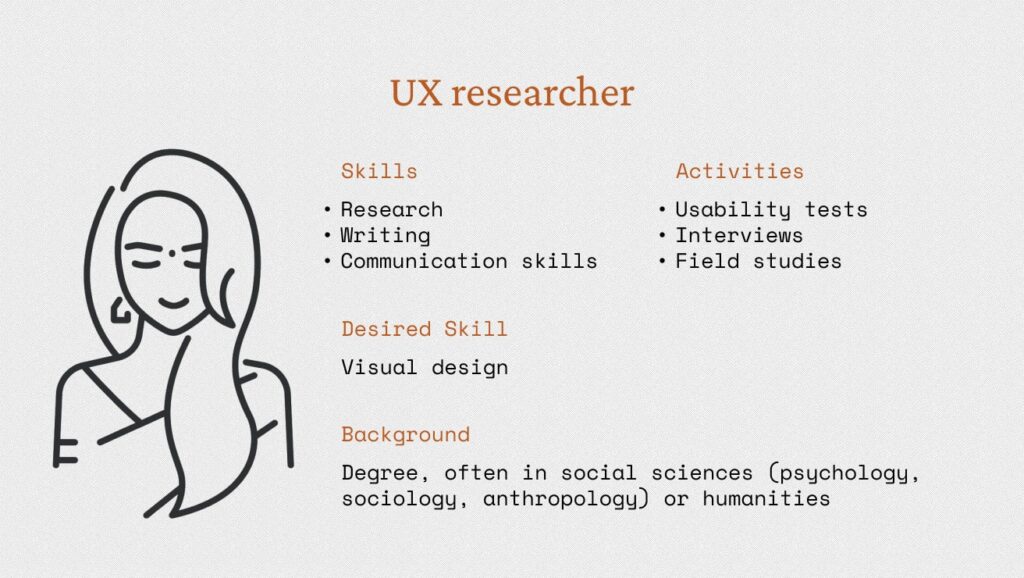
On the other hand, user researchers have to work with a lot of people. They have to make a research plan and convince other stakeholders or higher ups to allow them to do it because here the research is going to take money and time. Then they have to figure out how to:
- find research participants,
- interview them,
- collect bias-free data,
- analyze and synthesize it,
- share their insights,
- collaborate to make sure their findings get implemented, and
- finally measure the results to see whether they succeeded or not.
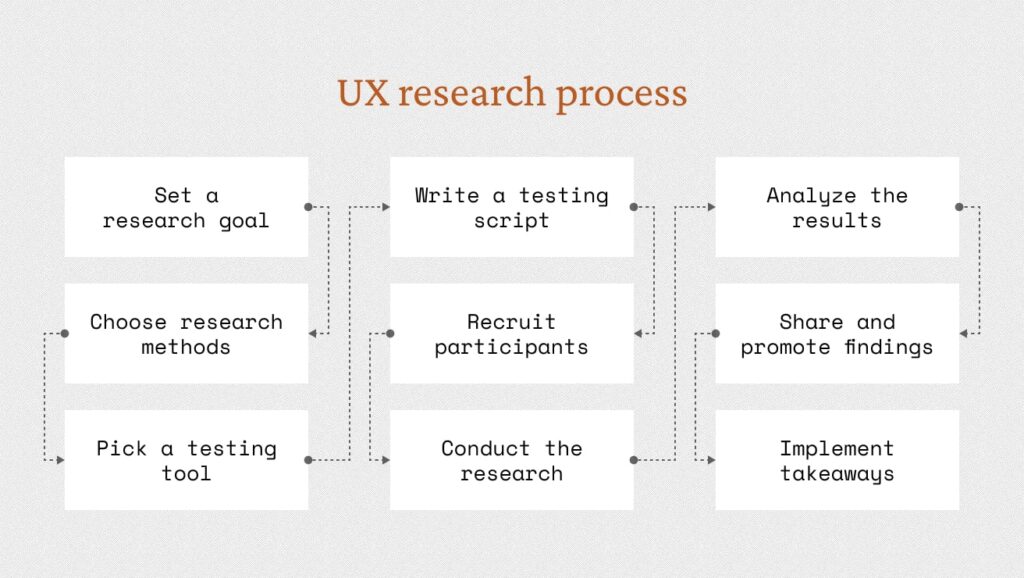
So the scope is much, much bigger and things move in a predictable and systematic fashion. Fundamentally, deep down both ways are more or less the same. But if your goal is to become better at user research or do it full-time in a more organized way or probably make a career out of it then you must possess or acquire at least 3 skills.
The 3 Skills Needed to Become a UX Researcher
- Empathy
- Pragmatism
- Collaboration
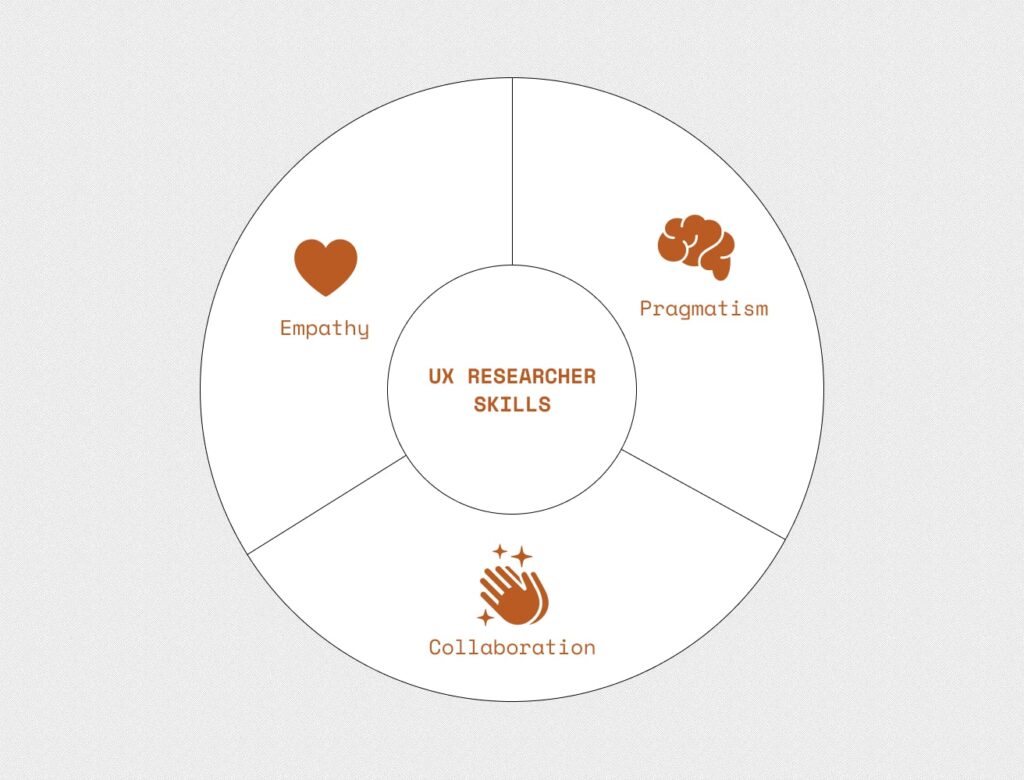
Sometimes it feels unfair how a few people have a knack for conducting user research. They’re more easy-going, as well as practical and collaborative in nature. For others like me, it takes a hell of a lot of time to learn all these skills.
1. Empathy
Here, we all agree that it’s an overused word in UX design. Just throw the word empathy in any conversation to let the people know you’re talking about UX. There are even dedicated courses to teach people empathy. Why is there so much fuss around it? I mean, unless you’re a psychopath, who in their right mind doesn’t empathize with people.
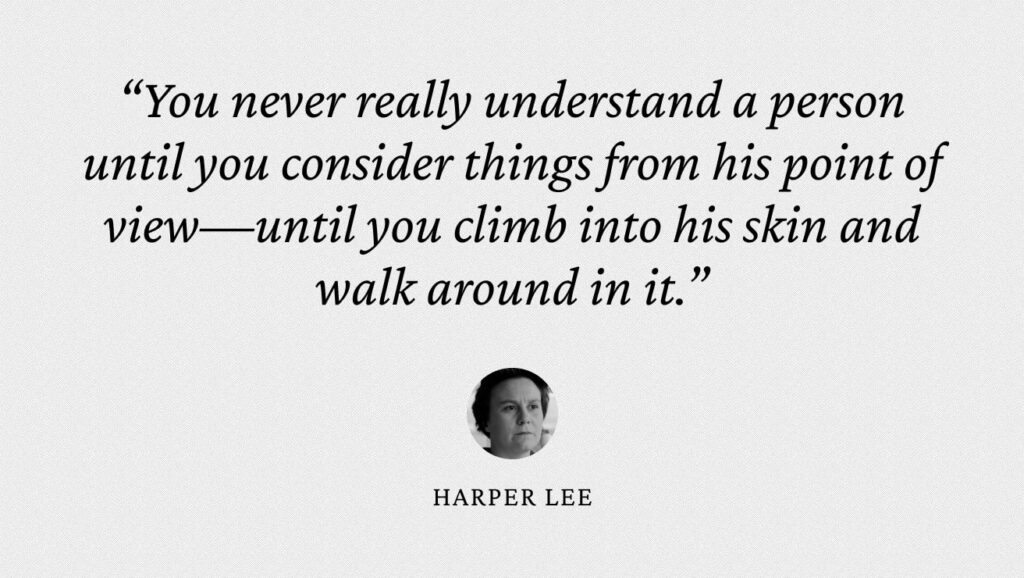
Empathy is the ability to understand and share another person’s experience and feelings. It means you have to put yourself in another person’s situation and see things from their perspective, feel their pain, understand their motivations, basically immerse yourself into their world and become themselves. Only then you might be able to generate a good solution for them.
Now, you may have noticed these empaths around you. Brené Brown is synonymous with empathy and her name frequently comes up whenever you search for empathy. Look, everyone is empathetic, some are more than others (women are definitely more empathetic than men) but most people never get a chance to meet with their emotional side like ever. It’s impossible when you’re spending your entire life sitting behind a desk in front of a computer.
But when you go out and talk to people, observe them in their native environment, then only you can see what kind of difficulties they are having. And only then you might design great products for them. So either be born with empathy (you already did) or acquire it (Read, watch, follow: Buddha, Mandela, Gandhi, Orwell, Osho etc.).
2. Pragmatism
Be pragmatic. Empathize with people but don’t forget yourself. Sometimes you immerse so deeply into someone’s situation that it becomes difficult for you to come out of it and think rationally. But that’s what makes a user researcher different from others. They know how to find solutions that are practical in nature as opposed to being ideal in theory.
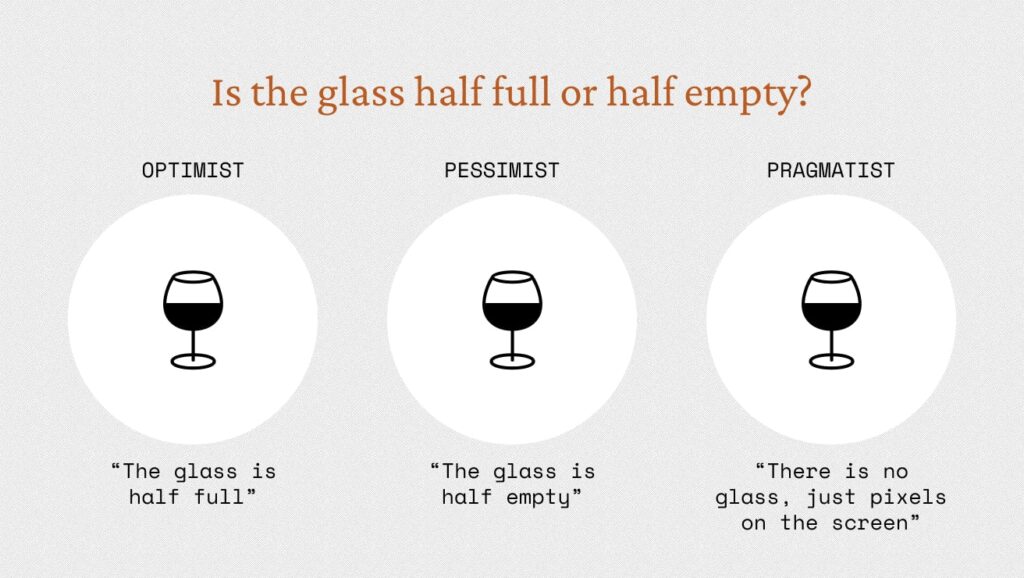
UX research is a combination of emotions and rationality. It’s an art as well as science, left and right brain thinking. So, first empathize with the same pain points others are feeling and then pull yourself out from that situation and find a practical solution to ease out people’s pain.
It’s a delicate balance and that is what makes it a specialized field. On the one hand you don’t want to be so compassionate that it paralyzes you to take an action (compassion fatigue), but on the other hand you also don’t want to be a misanthropic, cynical genius like Dr. House. You want the best of both worlds.

3. Collaboration
User researchers usually don’t care what an individual thinks. They are interested in groupthink (or actually they’re more interested in what people DO rather than think). So that means you should be an easy-going, warm, empathetic, passionate person, people would love to talk to. Or how else are you going to collaborate with people?
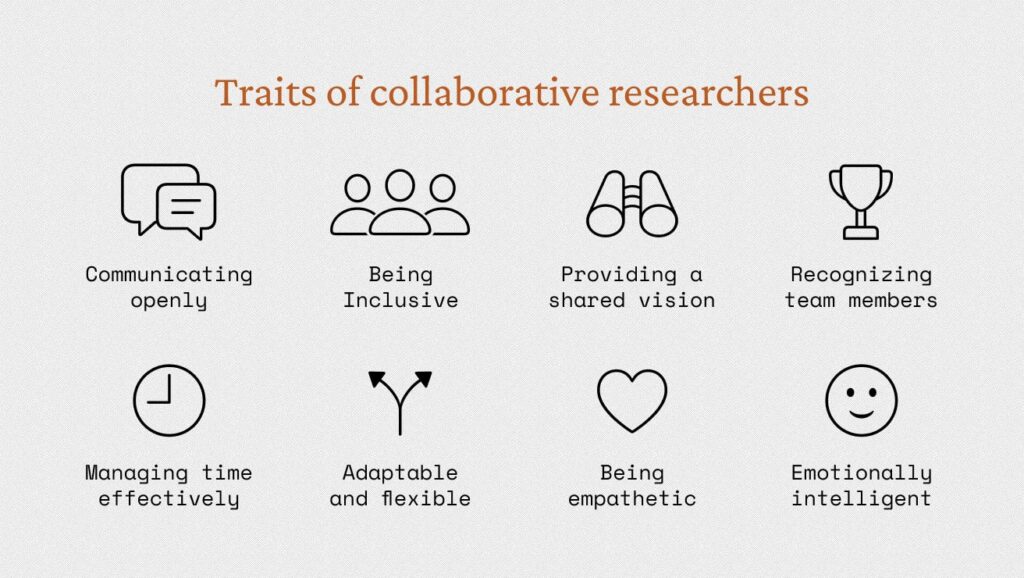
A user researcher has to convince his higher-ups to allow him to do research, then find participants and either go to their place or invite them to his turf, build a rapport and interview them, collect data, find patterns, share insights, follow up with stakeholders, measure results etc. among other things.
And all these activities require the help of other people like designers, developers, marketers, support, HR etc. so you have to be collaborative in nature. You have to be that kind of person, people love to help out. Collaboration is a two-way street, you scratch my back, I’ll scratch yours.
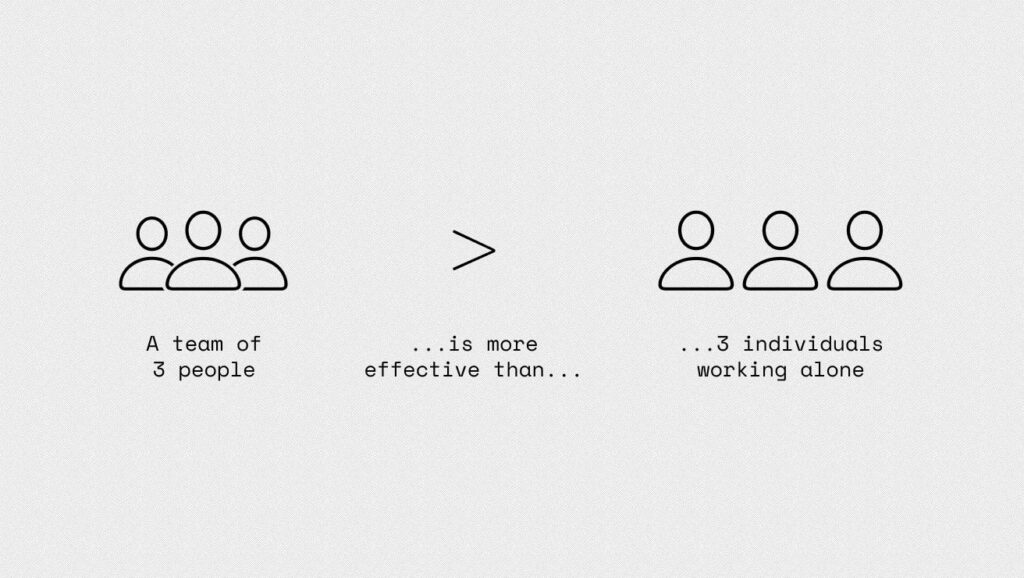
Other than these, there are other skills you must become good at, but you might learn them in a relatively short time. User research neither requires too many hard skills nor too much dependency on fancy tools. It’s a tool agnostic field. Most of the research required primitive tools. At most, you need:
- an app to record and transcribe user conversations,
- Google Workspace, and
- Figma, or any other tool to build prototypes.
And all of them are freely available on the internet. So, that’s it. Now you know who may do the research in an organization. In the next article, let’s talk about what user research is.
